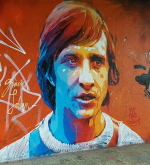
In May 2018, Neil Warnock became the first manager in English and Welsh football to achieve eight promotions in his career. His club, Cardiff, was the seventh different team he’d taken up a division, and the fourth he’d led into the very top-flight.
Despite his serial success, Warnock’s was not the first name that sprang to my mind during the coaching call in which I came up with the simile I’m about to share.
That name was Steve Bruce, who’s promotional record is almost as good, but crucially, like Warnock, has never won a major piece of silverware as a manager.
But then, nobody really expects them to win trophies.
They’re the kind of manager that gets brought in to turn around a championship club, save it from relegation, ideally make it into the premiership, and hang in there until another manager can be brought in to take the club on. Maybe an Arsene Wenger or a David Moyes.
A safe pair of hands that will secure a place in the top half of the league, challenging for occasional premier leadership while working, more in hope than expectation, towards those glittering glories of Europe.
Their Boards, their fans, and deep down I suspect they themselves, know that these are their boundaries of expectation, the narrow definitions of success and failure in the role.
All very interesting, but what has this got to do with charity leadership?
Well… everything, as it turns out.
I suspect somewhere between a third and a half of all the CEOs I’ve coached have, at some time or other, tabled the question: “Am I still the right person for this job?”
To be clear, these are not idle speculations, nor the result of pressures or performance problems – one of the clients who recently asked me this had not long been acclaimed Charity CEO of the Year for the second time in her career.
These questions are simply the result of those same boundaried expectations, invariably reinforced by successive recruiters and employers, which come to define the comfort zone of our capabilities and thereby the choices we see as available to us once we’ve “gone in and done the job”.
The charity has been stabilised, strategy refocused, leadership, engagement, and finances fixed; quality, culture and reputation rebuilt. We’re back in the premiership girls and boys!
And so, do I stay for another five years, shift into some kind of stewardship mode, maybe expanding my outside interests while overseeing a potentially dull but essential phase of incremental progress?
Or do I throw myself once more into the breach somewhere else, taking the reins at another big turnaround?
I’ve paraphrased a bit, but that was pretty much the question to which I replied: “It depends. Do you want to be Steve Bruce, David Moyes, or Pep Guardiola?”
My thinly veiled point was this: there are levels to leadership.
Guardiola is not there to turn a club around, to maintain it securely in mid-table, nor even to aspire towards a long-term goal of consistent premier leadership.
He is there to create something new: to continually attract the highest-potential players and to individually hone their skills, awareness, confidence, and capacity to exceed their own expectations, within his evolving philosophy and system of play. Not just to win match after match, and trophy after trophy, but to exemplify on the world stage a fundamentally better way to play the game.
And if his old mentor, Johan Cruyff, is anything to go by, Guardiola’s legacy won’t be restricted to his personal achievements, but will be amplified by the people he’s inspired and developed – his own early protégés have already secured the top jobs at Arsenal, Manchester United and Barcelona.
As a sector, we desperately need better ways to play our game, and we will need to nurture our own Cruyffs and Guardiolas to envisage and exemplify them.
Thus, I was delighted that, having gone back and discussed the simile with her team, she, and they, chose Guardiola, and are all now excited by and committed to the journey.
I think it will be a fascinating one for all of us.
But what about you? Which of those three archetypes best describes your own recent history, and which would you want for your future?
